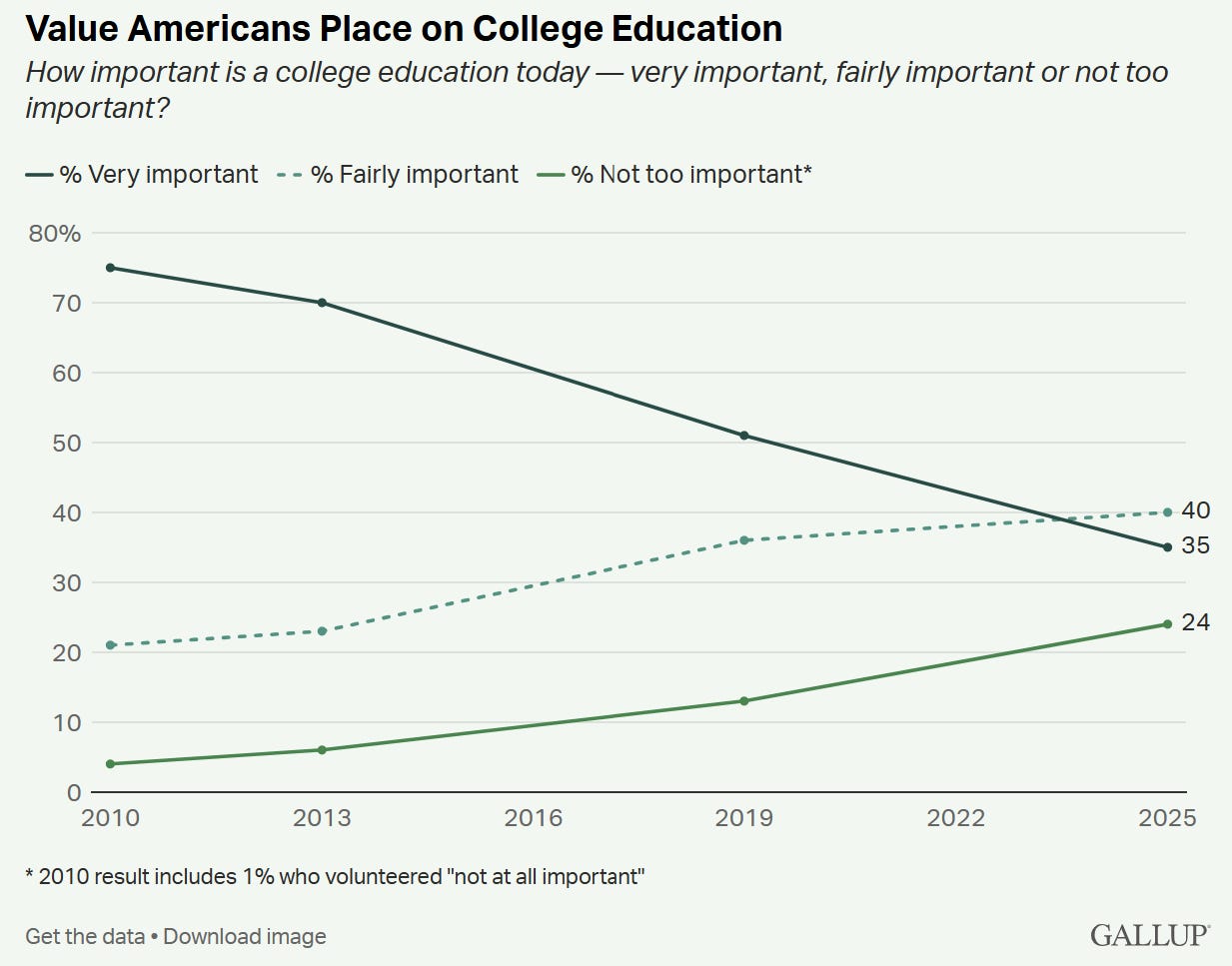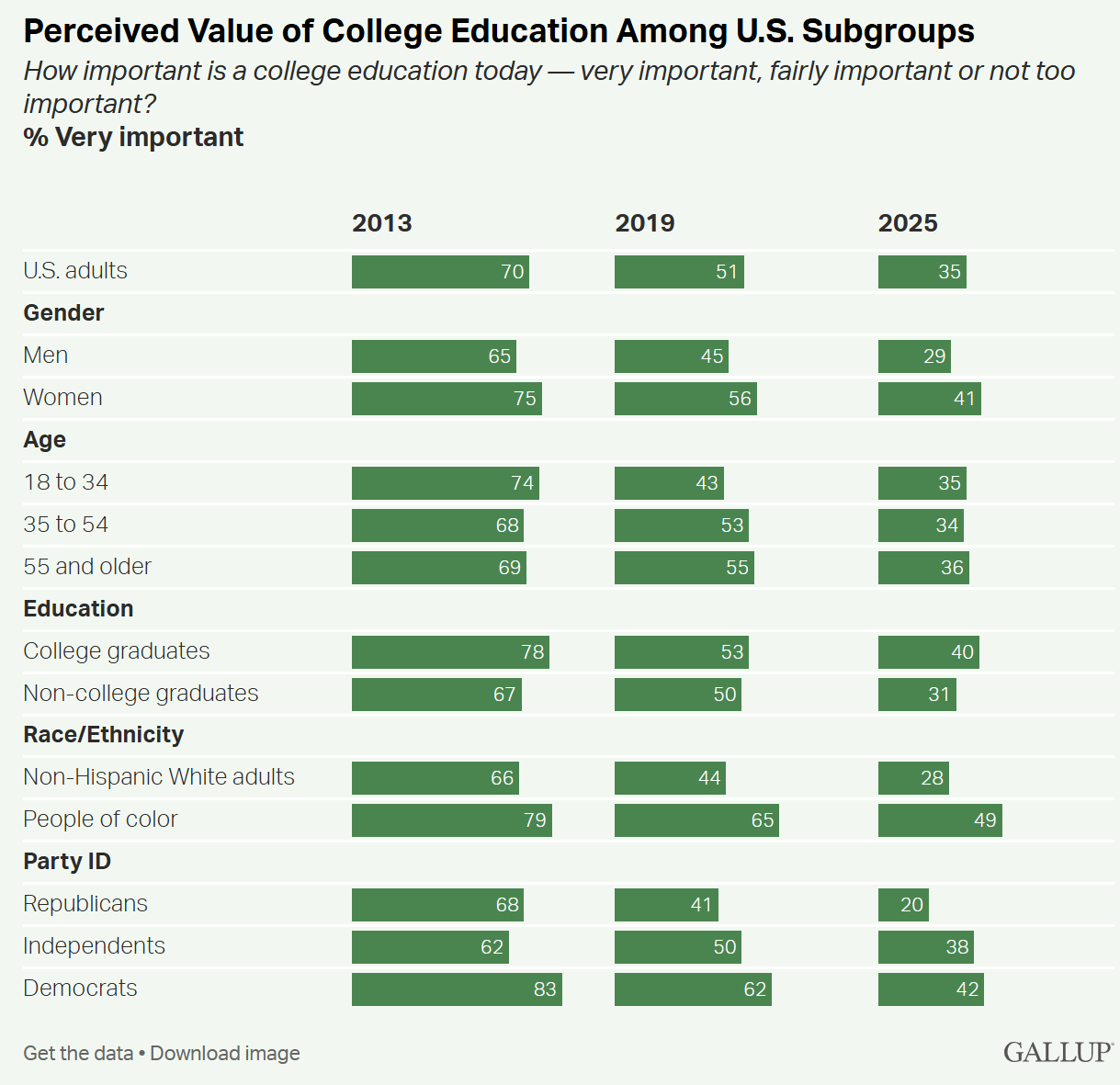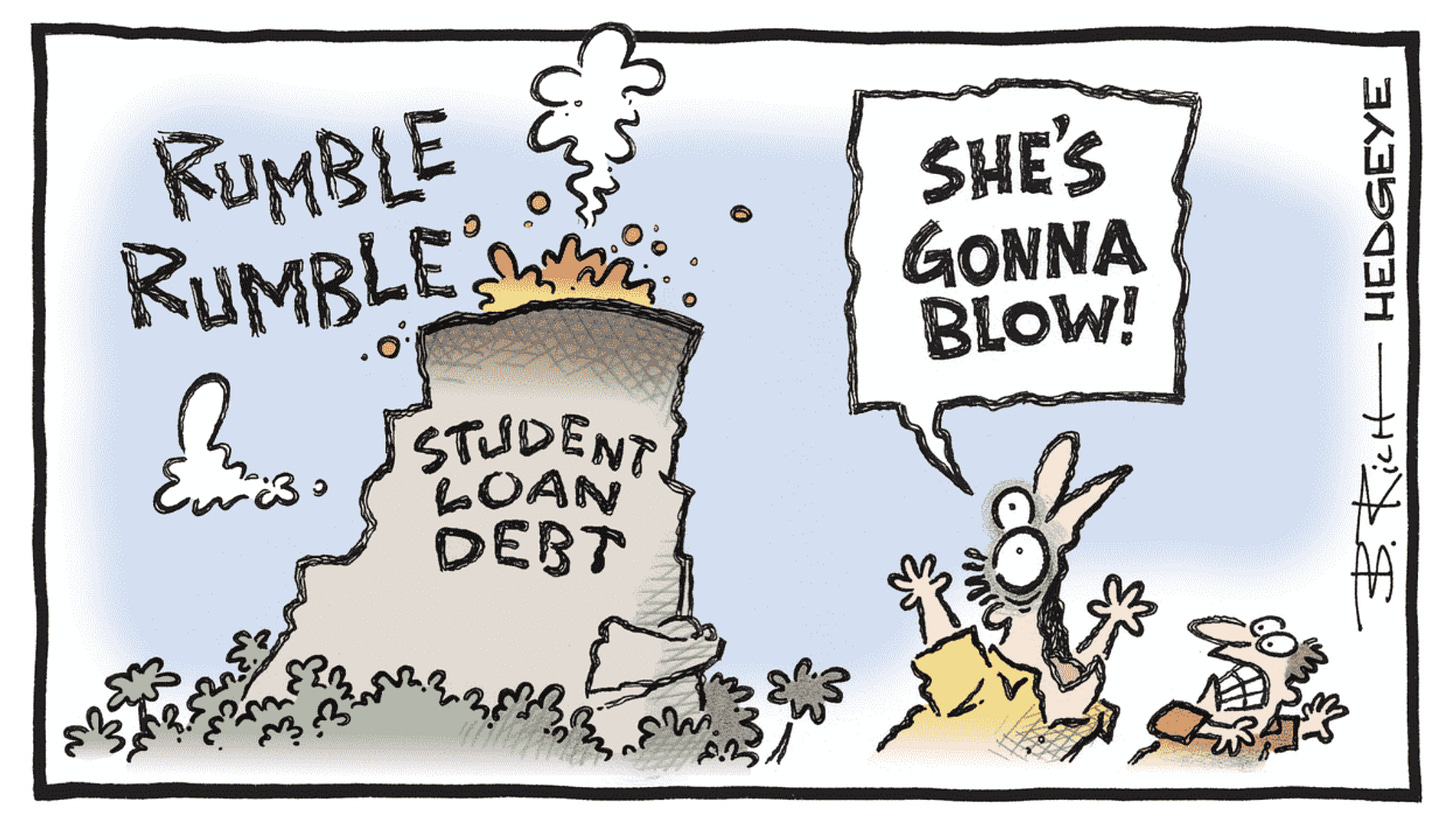Confidence in higher education has cratered. A record-low share of Americans now say a college degree is “very important.”
A hallmark of every Fourth Turning is collapsing trust in America’s institutions. Nowhere is that erosion more visible than in attitudes toward higher education.
A new Gallup survey finds just 35% of Americans consider a college degree “very important.” That’s down -16 percentage points since 2019 and a staggering -40 points since 2010. While another 40% still say a degree is “fairly important,” the message is clear: Universities have suffered a dramatic blow to their public standing.

Since 2013, support for higher education has collapsed across the board, with every demographic group down at least -24 points. Many of the sharpest declines came from groups already skeptical of higher ed: men (-36 pp), non-college graduates (-36 pp), and Republicans (-48 pp). Yet even historically pro-college groups have recorded significant declines: women (-34 pp), college graduates (-38 pp), and Democrats (-41 pp). Most shifted their views from “very important” to “fairly important.”

Confidence has eroded alongside enrollment. In 2009, 70.1% of high school graduates enrolled in college. By 2024, that share had fallen to 62.8%. That’s a decline of -7.3 percentage points. The fact that enrollment has fallen a lot less than enthusiasm suggests that, for a rising share of youth, college is viewed as a dreary if necessary chore—something you do simply to qualify for a decent career.
So why is college a fallen star? (See “College Enrollment Declines Deepen.”) For conservatives, the animus is ideological: Campuses are viewed as bastions of progressive orthodoxy that cater to activist students while shutting out dissent. But the disillusionment extends well beyond the culture wars. High tuitions and rising student debt have angered Americans across the political spectrum. Many complain that college curriculum in the liberal arts—courses in literature, history, and the social sciences, once a big draw—are today worse than politically correct: They are dreary and pedantic. And then there’s the questionable payoff. During the pandemic, a hot job market gave many young people without degrees a viable alternative. For many, the college promise has simply lost its value. (See “Is College Still Worth It?”)






Caroline Bird's excellent book on the Great Depression, "The Invisible Scar," has a chapter on how the same was happening in the 1930s. College graduates couldn't find work and wondered why they had bothered to get their degrees. And lived with their parents and struggled to make ends meet...it's like we're on a merry-go-round or something...
As someone who values education, this is very depressing. People are being exposed less and less to ideas and experiences that challenge someone's worldview or that encourages personal growth. Instead they coalesce with their self-identified tribe and become more deeply polarized within that tribe.
I truly hope education becomes something that is seen as valued again with the eventual Resolution of this 4th Turning and the emergence of the next saeculum and subsequent 1st Turning.